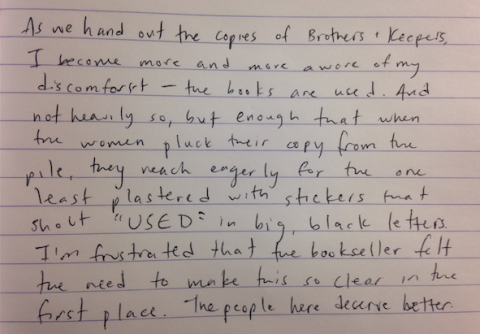Reflection on Prison Experience
By han yuDecember 15, 2015 - 00:31

Throughout this semester, so many memorable things happened that stood out to me about the topics of dehumanization, critical reflection on personal narratives, the importance of multidimensional understandings about social issues. However, I want to reflect on our experience of final evaluation in the last lesson and talk about a major concern that has been becoming more and more obvious for me.










